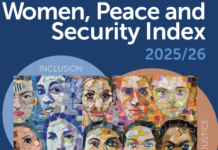Political scientist Birgül Demirtaş has said women face many inequalities in professional life and that government policies had deepened gender inequality in all walks of life.
Speaking to Deutsche Welle (DW) Turkish service, Demirtaş said it was imperative for women to have equal rights in politics, the labor force and social life. “Turkey is dominated by patriarchal values, and the government has consolidated these values with its policies instead of finding ways for a more egalitarian society,” she said.
Reminding that Turkish President Recep Tayyip Erdoğan had once said women and men were not equal, Demirtaş said such statements were “backwards” and a contradiction to the constitution, which protects gender equality and women’s rights.
Demirtaş emphasized the need for gender quotas in politics and the labor force. “The usual excuse for not having women in high-ranking positions is that there are no women with the expertise to fill that role. But this is not true. Men prefer men and specifically those men who are in their close professional networks. They have serious prejudices against women being in decision-making positions. Unfortunately, such prejudices hinder women’s success.”
Demirtaş added that academic institutions were no different when it came to gender inequality. “Women occupy 52 percent of research roles, but only 43 percent when it comes to professorships. Only 9 percent of university rectors are women. So, while we start on equal footing with men, as the position gets higher in rank, there are fewer women.”
She added that many men in the labor force were not aware of gender inequality or the social dynamics that consolidated this inequality. Women are often the primary caregivers of the family, and they are responsible for domestic duties such as cleaning and cooking. These responsibilities make women hesitant to seek administrative and high-ranking jobs.
A report by the World Economic Forum (WEF) ranked Turkey 129th among 146 countries as regards gender equality.
The Global Gender Gap 2023 report indicated that Turkey had dropped five places in the global ranking in comparison to the previous year. Moreover, Turkey ranked the worst in gender equality in the Middle East and Eurasia category.
The rankings were made taking into consideration women’s contribution to the labor force, their access to education and healthcare, political participation and the rate of femicide in the country.















